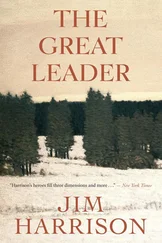Jim Harrison - Legends of the Fall
Здесь есть возможность читать онлайн «Jim Harrison - Legends of the Fall» весь текст электронной книги совершенно бесплатно (целиком полную версию без сокращений). В некоторых случаях можно слушать аудио, скачать через торрент в формате fb2 и присутствует краткое содержание. Жанр: Классическая проза, на английском языке. Описание произведения, (предисловие) а так же отзывы посетителей доступны на портале библиотеки ЛибКат.
- Название:Legends of the Fall
- Автор:
- Жанр:
- Год:неизвестен
- ISBN:нет данных
- Рейтинг книги:5 / 5. Голосов: 1
-
Избранное:Добавить в избранное
- Отзывы:
-
Ваша оценка:
- 100
- 1
- 2
- 3
- 4
- 5
Legends of the Fall: краткое содержание, описание и аннотация
Предлагаем к чтению аннотацию, описание, краткое содержание или предисловие (зависит от того, что написал сам автор книги «Legends of the Fall»). Если вы не нашли необходимую информацию о книге — напишите в комментариях, мы постараемся отыскать её.
Legends of the Fall — читать онлайн бесплатно полную книгу (весь текст) целиком
Ниже представлен текст книги, разбитый по страницам. Система сохранения места последней прочитанной страницы, позволяет с удобством читать онлайн бесплатно книгу «Legends of the Fall», без необходимости каждый раз заново искать на чём Вы остановились. Поставьте закладку, и сможете в любой момент перейти на страницу, на которой закончили чтение.
Интервал:
Закладка:
JIM HARRISON
LEGENDS OF THE FALL
TO GUY AND JACK
REVENGE
Revenge is a dish better served cold.
(Old Sicilian adage)
CHAPTER 1
You could not tell if you were a bird descending (and there was a bird descending, a vulture) if the naked man was dead or alive. The man didn't know himself and the bird was tentative when he reached the ground and made a croaking sideward approach, askance and looking off down the chaparral in the arroyo as if expecting company from the coyotes. Carrion was shared not by the sharer's design but by a pattern set before anyone knew there were patterns. The vulture had just eaten a rattler run over by a truck outside of Nacozari de García, a little town well off the tourist run about a hundred miles from Nogales. The coyotes would follow the vulture's descent out of curiosity whether or not they were hungry from the night's hunt. As the morning thermals developed more vultures would arrive until the man's dying would have an audience.
As the dawn deepened into midmorning and the heat dried and caked the blood on the man's face, the blood lost most of its fresh coppery odor. The man was dying fitfully now, more from the heat and dehydration than from his injuries: an arm twisted askew, chest a massive blue bruise, one cheekbone crushed in with a hematoma rising like a purple sun, his testicles inflated from a groining. And a head wound that darkened the sand and pebbles and drew him down into his near fatal sleep of coma. Still, he kept breathing, and the hot air whistled past a broken tooth and when the whistle was especially loud the vultures were disturbed. A female coyote and her recently weaned pups stopped by but only for a moment: she snapped at the pups saying this pitiful beast is normally dangerous. She nodded in passing to a very large, old male coyote who watched with intense curiosity from the shadow of a boulder. He watched, then dozed, even in sleep owning an alertness unknown to us. His belly was full of javelina and watching this dying man was simply the most interesting thing to happen his way in a long time. It was all curiosity though: when the man died the coyote would simply walk away and leave it to the vultures. And it had been a long vigil for him, having been close by when the naked man had been thrown from the car the night before.
In the first comparative coolness of the evening a Mexican peasant ( peóne in Mexican slang) and his daughter walked along the road making short forays into the brush for stray pieces of mesquite firewood. Rather, the man walked doggedly under his light load of wood and the daughter pranced, hopping from one foot to another, skipping, running then waiting for her father. She was his only child and he wouldn't let her pick up firewood for fear she would be bitten by a scorpion, or a corallo, a coral snake which unlike the rattlesnake gave no warning though it was shy and retiring and meant no harm. It simply bit when cornered or provoked, then slid away and calmed its nerves under another log or stone. The daughter carried a bible. She helped in the kitchen of the Mennonite mission where her father had long been the custodian.
The daughter began to sing and that flushed the vultures still another hundred yards down the road. They were about to leave anyway for the safety of their mountain rookery before evening deepened. The coyote withdrew a little farther into the gathering shadows. He recognized the voices of the man and his daughter and knew from the seven years of his life that they weren't dangerous to him. He had watched them on their way to the mission countless times but they had never seen him. The great birds flushing in the evening sun aroused the curiosity of the father and he quickened his pace. He had a hunter's inquisitiveness, not unlike the coyote's, and he remembered the time when he had found a large deer freshly fallen from an escarpment by following a descending gyre of vultures. He told his daughter to wait at a distance and he cautiously entered the dense chaparral along the road. He heard a rush of breath and a faint whistle and quickly opened a long pearl-handled knife. He crept noiselessly toward the whistling, smelling a trace of blood amidst the vulture dung. Then he saw the man and whistled himself, kneeling to feel the pulse. At odd times he had accompanied the missionary who was also a doctor on his treks into the mountains and he had learned the elements of first aid. Now he stood, whistled again in unison with the dying man, and looked at the sky. He was mostly Indian and his first thought was to simply walk away and avoid any contact with the Federales. But then the doctor was friends with the Federales and the man remembered the parable of the good Samaritan and looked back down at the body somewhat fatalistically, as if to say, I'll help but I think it's too late.
He came out of the brush and sent his daughter running to the mission a half mile down the valley. He squatted in the roadway and rolled pebbles back and forth with the blade of his knife. The sight of someone so gravely injured had quickened his heartbeat but he coolly rehearsed his story of finding the body. In his youth, in addition to being a hunter, he had been a small-time bandit and he understood that when speaking to authorities it was best to keep things simple.
At the mission Diller sat at his loin of pork roast with sauerkraut and potatoes. His VHF radio was tuned into a mariachi station in Chihuahua. Though he was a Mennonite and officially disapproved of radios, he felt he deserved certain concessions and had begun listening to such music ten years before when he came to the mission under the guise of speeding his learning of colloquial Spanish. Huge and rubicund, he was likely to bray along with the music to the amusement of the women in the kitchen. The church allowed neither alcohol nor tobacco but Diller owned an unproscribed vice: gluttony. He savored the pork loin that was prepared for him every Thursday night as the sole remnant of his life in the States. He much preferred Mexican foods which he consumed in volumes that made him fabled throughout the area. Not that he wasn't profoundly devout, but he understood it was his doctoring, his medical skill, that made his particular brand of Jesus popular in the impoverished mountain country. He no longer returned to the States for his annual month's leave. It bored him to sit around for thirty days in North Dakota and pray for the heathen throughout the world. Diller rather preferred the heathen and the bleak beauty of their country, their long-suffering ironies and pre-Christian fatalism. He loved to eat the chickens, pigs, piglets, goats and lambs the people brought him as presents when he performed some medical miracle. He even loved his absurd pansy male nurse, Antonio, who was forever inventing reasons to drive off to Nogales or Hermosillo. The year before the Director of Missions had visited and questioned Diller, wondering if Antonio weren't a "bit peculiar." Diller played dumb, cherishing Antonio's knack for fancy dishes beyond the reach of the cooks, and his singing of ballads even though the gender in the ballads tended to get switched around.
Diller groaned when Mauro's daughter rushed in announcing the wounded man up the mountain. Mauro's daughter lugged his medicine bag out to the Dodge Powerwagon that served as an ambulance, with a canvas cover and cot in the back. Diller followed carrying the casserole with him. He liked best the sauerkraut in the bottom soaked with pork fat. He paused on the porch of the hacienda and breathed deeply the odor of the evening air: dung and sweet cloves, crushed and rotting flowers, the smell of overheated rocks and sand fading into night. He loved this valley that seemed somber and umbrous even in the brightest sunlight.
Читать дальшеИнтервал:
Закладка:
Похожие книги на «Legends of the Fall»
Представляем Вашему вниманию похожие книги на «Legends of the Fall» списком для выбора. Мы отобрали схожую по названию и смыслу литературу в надежде предоставить читателям больше вариантов отыскать новые, интересные, ещё непрочитанные произведения.
Обсуждение, отзывы о книге «Legends of the Fall» и просто собственные мнения читателей. Оставьте ваши комментарии, напишите, что Вы думаете о произведении, его смысле или главных героях. Укажите что конкретно понравилось, а что нет, и почему Вы так считаете.











